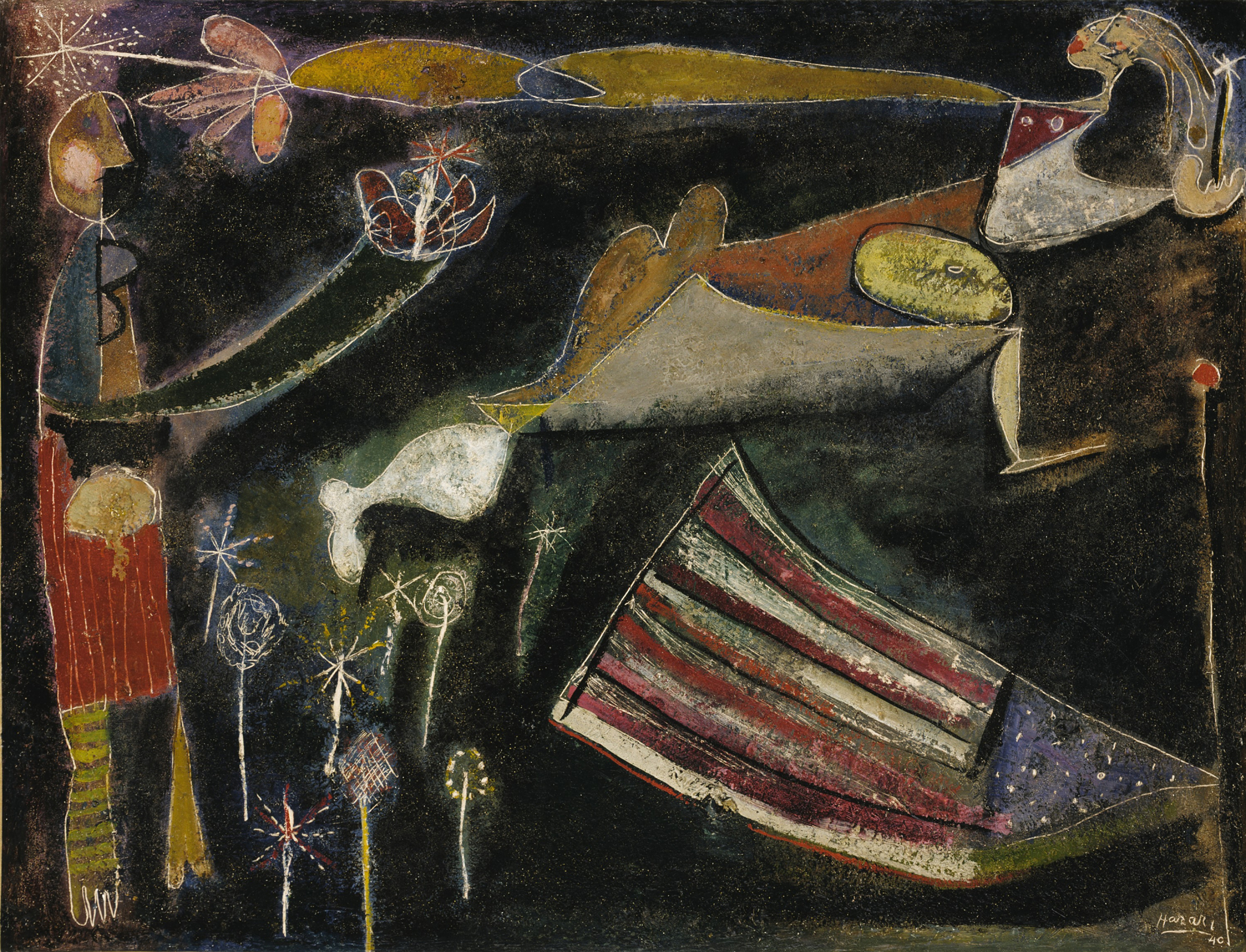
Sparklers on the Fourth, by Hananiah Harari, 1940. Smithsonian American Art Museum, Gift of Patricia and Phillip Frost.
• Thinking about Thomas Jefferson and John Adams on the anniversary of their July 4 deaths: “These famous founders weren’t just flawed—they were flawed in ways that reveal some of the exclusionary, white supremacist elements of the nation’s origins.” (The Saturday Evening Post)
• On the Japanese stories of Lafcadio Hearn. (Paris Review Daily)
• On old feminist utopias. (Current Affairs)
• Zora Neale Hurston “approached folk culture not as a static relic of the past, but as a dynamic sieve that collects the critical contemporary commentary of its creators. For Hurston, lore was a special form of knowledge that disclosed the cosmic discovery process of humanity, unfolding perpetually as various groups of people living in unique locales ‘use up a great part of [their] life-span trying to ask infinity some questions about what is going on around its doorsteps.’ ” (Black Perspectives)
• Learning a lot on the edges of a dead literary luminary. (London Review of Books)
• An open letter to the U.S. Holocaust Memorial Museum. (NYR Daily)
• On the cast of characters that surrounded the Plessy v. Ferguson case. (The Nation)
• A 1917 “Star-Spangled Banner” scandal. (NewYorker.com)
• A World War II aircraft was recently excavated in Ireland. (The Irish Times)
• There’s a new campaign to digitize a trove of New Orleans newspapers. (Fine Books & Collections Blog)
• “Fellow scholars have asked why Otaño-Gracia would want to study Old Norse literature considering that she’s from Puerto Rico—as if it’s a more logical area of study if you’re from, say, Ohio. She’s been mistaken for a waitress by an older male scholar while out to dinner at Kalamazoo, even though she was wearing her nametag displaying her academic affiliation.” (The Chronicle Review)
• Go to school, learn some pirate math. (Aeon)
• When Egyptology meets internet crowdsourcing. (The New Yorker)
• This week in history: President James Garfield was shot by Charles Guiteau on July 2, 1881. (Library of Congress Blog)
• This week in obituaries: a 9/11 first responder, a Cold War journalist, a former curator at the Museum of Modern Art, an editor of World of Interiors, “midwife to the minivan,” a federal prosecutor in the Rodney King case, and “a television news reporter who would ultimately get more than 115 suspects to turn themselves in to law enforcement.”